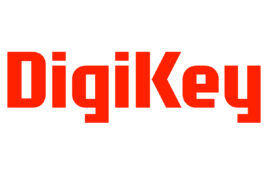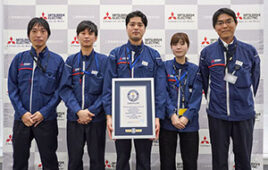 At last year’s Hannover Messe, igus CEO Frank Blasé showed off the company’s brand-new igusGO app, a brilliant use of AI to help customers identify where igus products could be implemented on a particular machine. He demonstrated taking a photo of a nearby bicycle, which the app correctly identified, and then showed the various bearing locations that bikes have — all potential sales points for the company.
At last year’s Hannover Messe, igus CEO Frank Blasé showed off the company’s brand-new igusGO app, a brilliant use of AI to help customers identify where igus products could be implemented on a particular machine. He demonstrated taking a photo of a nearby bicycle, which the app correctly identified, and then showed the various bearing locations that bikes have — all potential sales points for the company.
This year, igus’ Oliver Cyrus told me that they have a lot of new machinery applications within the app, numbering roughly 400 — from cars to machines to tractors.
“The app recognizes different kinds of applications and show us how to improve the machines with motion plastics,” he said. “It’s very easy; I take a picture of the machine out in the wild. It uses AI in the recognition that this is a tractor. Then it loads a lot of the different product images. We can go into the cabin, for example. So, if you are interested in seating, you can see the different bearings or chains inside. Then you can go to the chain for examples go directly to the website and see what are the advantages of this? Each chain, where can I buy it? What is the lifetime of the chain? Sustainability? And what is the price?”
In a press release, the company detailed more of its focus for the upcoming trade show, including a focus on intelligent plastics. igus will present energy chain systems; cables; linear guides; and plain, spherical, and slewing ring bearings equipped with intelligent sensors. They not only enable real-time condition monitoring but can also be connected to various networks and IoT systems. This means they can be integrated into a predictive-maintenance concept to avoid expensive production downtimes caused by unplanned plant shutdowns. Sensors, evaluation modules and software enable a dynamic service life calculation and help define optimum maintenance times for the products — which also offers an advantage in terms of sustainability. The reason is that products are not replaced unnecessarily or too soon, but only when they have reached the end of their product life cycle.
Low-cost robots is another area where the company is innovating. All robots at igus are made in Cologne, from injection molding and assembling circuit boards to programming. This includes the ReBeL cobot, which is available in the fully equipped plug-and-play version for about $5,500. For users looking for an even more compact solution, igus has developed the ReBeL KID.
Visitors to the preview will already be able to see an Education AGV, an open-source solution and autonomous learning platform consisting of an automated guided vehicle system (AGV) that can be combined with cobots such as the ReBeL or ReBeL KID. Customers can combine compatible low-cost accessories from more than 100 manufacturers, such as grippers or vision systems, via the RBTX online marketplace — supported by online tools and 3D models. According to igus, RBTX is designed to enable companies of all sizes to get started with automation at low cost.
Filed Under: NEWS • PROFILES • EDITORIALS




